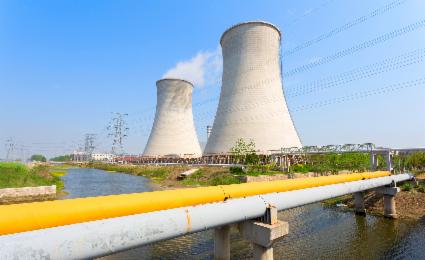Assessing the UK's position in the global race to adopt CCS


The UK Nuclear Renaissance: A Key or Peripheral Player in Net Zero UK?
The future role of nuclear power in the UK
The United Kingdom, together with the rest of the world, is actively tackling the urgent need to combat climate change and finding sustainable, low-carbon solutions to power our economies. With the UK being the first G7 nation to commit to reaching Net Zero emissions by 2050, the journey towards a low-carbon future has become a national imperative.
Following the Russian invasion of Ukraine, the UK government unveiled its Energy Security Strategy in April 2022, outlining a strong commitment to expand low carbon energy generation. This includes ambitious plans to add up to 24 GW of nuclear capacity by 2050, which would account for approximately 25% of the projected electricity demand. Under the confluence of decarbonisation and energy security priorities, nuclear power has re-emerged as a prominent and much-debated topic of the UK's overarching energy strategy. In this report, we delve into the relevance and importance of nuclear power in the UK's future energy mix, by addressing four key aspects: regulatory framework and landscape, technology options, nuclear’s role/fit in energy mix as well as financing accessibility of nuclear projects.
1. Regulatory and policy framework of nuclear energy
- Against the backdrop of renewed interest in nuclear energy across many countries (US, UK, Canada), it remains to be seen how effective is the UK regulatory and policy framework to facilitate the ambitious growth in nuclear capacity
- A healthy dose of scepticism is justified considering the uncertainty and delays associated with nuclear energy across multiple jurisdictions. The acuteness of the situation (in the UK), is further exacerbated as EDF is now under the control of the French government
- Successfully implementing the complex RAB model could be challenging, considering the delays and difficulties associated with implementing the commercial framework for other aspects of the Energy Transition – e.g., CCS and low carbon hydrogen clusters
2. Nuclear technology options ·
- SMR could be the more attractive alternative to the existing Gen III/III+ reactor designs, but its real cost competitiveness is unlikely to be realised until 2035/40 and beyond
- To reach the inflection point where SMR does become more attractive and economically competitive than large-scale nuclear, a combination of convergence on a few select SMR designs, international collaboration of nuclear regulators and firm commitment from governments are needed
- Advanced Modular Reactors (AMRs) possess the potential to deliver considerably higher cost competitiveness when compared to previous reactor designs. Nevertheless, their medium-to-long term commercialisation readiness (~10-20 years) suggests that they may be unlikely to have material impact on countries like the UK or most developed economies that aim to decarbonise power generation by 2035
3. Nuclear role/fit in the future energy mix
- Despite near term head winds, offshore wind is earmarked to be the backbone of UK’s future power generation system, projected to account for up to ~70% of the total electricity output
- Consequently, the power system in the UK is undergoing a significant transformation, transitioning from the traditional "base load & peak load" model to an "intermittent & dispatchable" one. This paradigm shift could potentially render the role of continuous and firm base load power, obsolete
- Nuclear power addresses two pillars of energy trilemma – offering Energy Security and Sustainability to the generation mix, but currently lacks commercial viability to drive Energy Equity relative to other low-carbon alternatives, even with subsidies/incentives
- Advancement in emerging nuclear technologies have the potential to overcome the main limitations of large-scale nuclear power - dispatchability and commercial justification. However, the timing of technological maturity (currently uncertain), will ultimately determine the role these innovations can play in the future UK energy mix
4. Accessibility to financing for nuclear projects
- The quantum of capital to deploy 24 GW of nuclear capacity in the UK (by 2050) is significant even with potential cost improvements via SMR
- Construction risks associated with long history of delays and cost overruns remain the most detrimental hurdle for investors when it comes to nuclear projects
- Government authorities and policymakers are taking positive steps by implementing funding mechanisms to encourage and de-risk private investments. However, the practical outcome and effectiveness of these measures are yet to be demonstrated
- Financing likely to be a persistent and significant obstacle in the UK for new nuclear projects leading into ~ 2030/35, considering the risk/reward appetite and alternative investment opportunities available to capital providers
To conclude, we believe that new nuclear will play a limited role in supporting the UK government's 2035 milestone to decarbonise power generation. With improvements in economics, dispatchability, and load following characteristics, it could assume a more prominent role in contributing to the 2050 Net Zero target. Nuclear's ability to complement offshore wind and other low-carbon generation assets is contingent on the timing of maturity and commercial feasilibility of the intriguing value propositions of SMR and AMR reactor designs.
Register now to access the full study, that explores the relevance and importance of nuclear power in the UK's future energy mix, by addressing four key aspects. Additionally, you get regular insights into Energy & Utilities topics.







